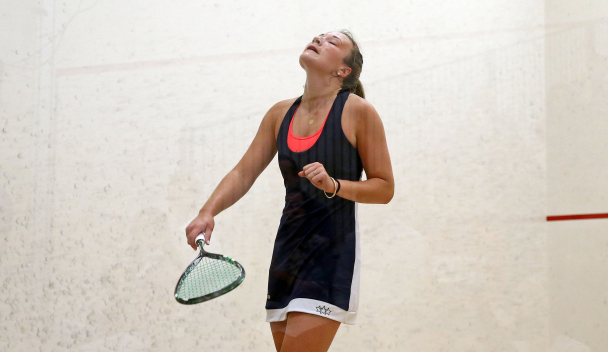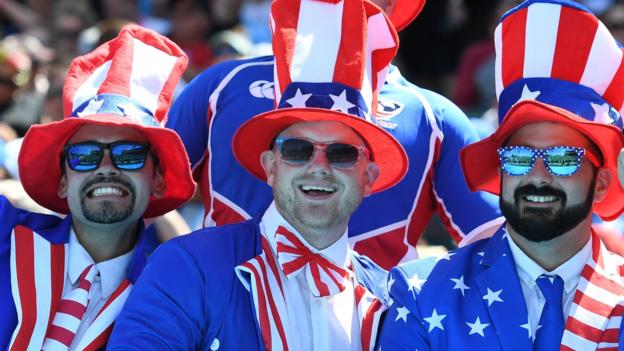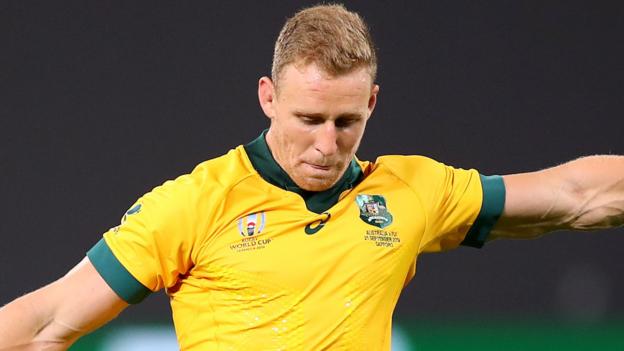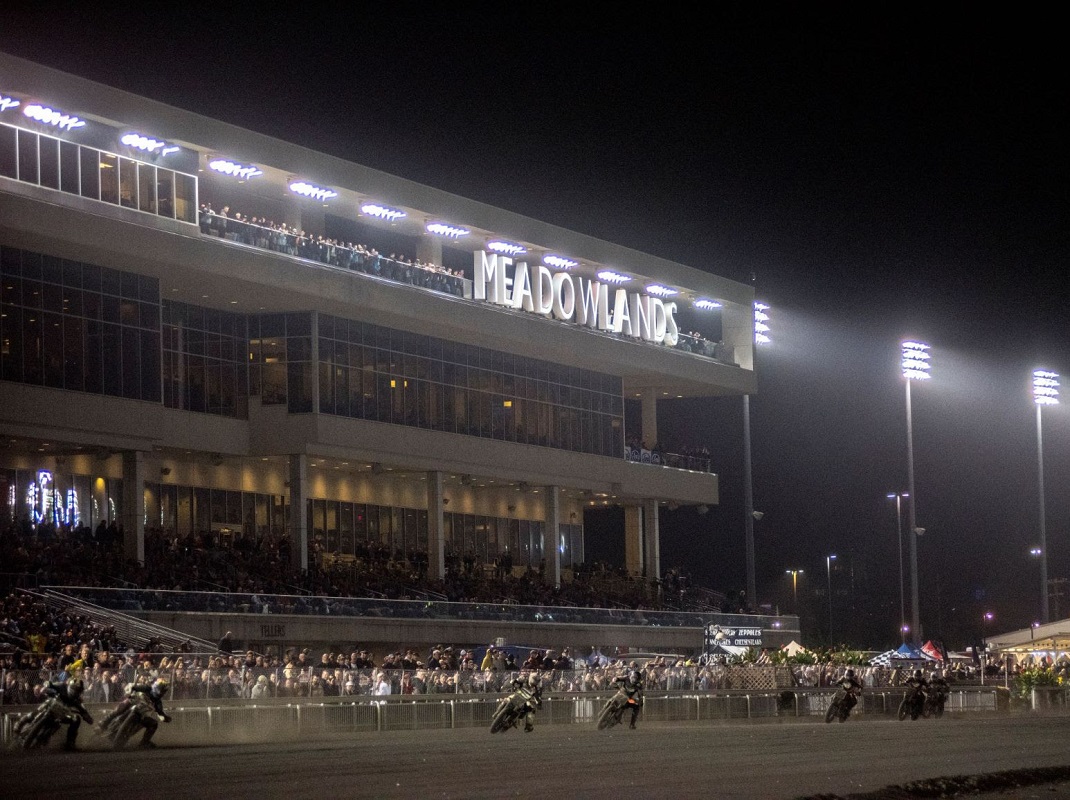"Well, I mean, you're American to start with. You don't even have rugby here."
So observed Emily, Ross Geller's English girlfriend, when the sport popped up as a plot device in a 1998 Friends episode.
It didn't get any better for rugby on that rare outing in the stateside mainstream.
Ross was duly pummelled by a series of dentally challenged, liver-damaged British stereotypes in game that bore little resemblance to the actual sport.
Things have started to change, though, in the United States.
Two decades after that programme aired, Perry Baker sauntered off a pitch in Las Vegas' Sam Boyd Stadium with a cup in his hands and the acclaim of 30,000 American fans ringing in his ears.
Among them was an Uncle Sam, a Hulk Hogan and several fans dressed in little more than star-spangled bikinis.
His United States team had just beaten England and Olympic champions Fiji on their way to winning the Las Vegas leg of the World Sevens series. This March, they beat New Zealand on their way to defending their crown.
In the shortened format, the United States are a genuine world power, finishing second in the World Series Sevens standings to mark themselves out as bona-fide contenders for Olympic gold at Tokyo 2020.
The 15-a-side team have made the trip to the 2019 World Cup in Japan with less hope of contesting the big prize, however.
"If they beat Tonga and put a flag in a ground with a valiant performance against one of the big nations, that is a narrative that we can sell to the audience," explains former England and British and Irish Lions prop Alex Corbisiero, who now lives in the United States where he works as an analyst for the NBC network's rugby coverage.
"One of the catalysts for growing the sport is patriotism and getting behind the United States."
To the casual observer, bringing some of the sevens dazzle to the 15-a-side game would seem simple.
Baker's electrifying pace arrived in rugby via an NFL career cut short. Team-mate and fellow speed sensation Carlin Isles was a promising track athlete with a 100m personal best of 10.15 seconds.
Convert eight guys from scrimmage to scrummage. Set seven running backs running in a backline. Make an all-court second row out of a basketballer, perhaps, and you have a XV to stack up some serious wins on the world stage. Right?
Not so, says Corbisiero, who believes it is easier for those such as former Wasps wing Christian Wade and ex-Saracen Hayden Smith to swap into American football than for athletes to go the other way.
"American football players have been specialised in a key role in the team from a young age; for them to pick up all the nuances of rugby is difficult," he told BBC Sport.
USA Rugby's senior figures agree. For them, the key to diverting more American athletic ability to rugby lies in school programmes, rather than converting college graduates.
"We have got huge potential," explains chief executive Ross Young.
"The number of athletes that are potentially available in the United States is what has all the established rugby countries worried.
"We have to ensure there is multi-sport access to those athletes.
"The prime targets for the best athletes, certainly in the short and medium term, are still going to the mainstream sports in America, but we have to get the rugby ball in their hands as early as possible, so that they can come back to rugby at a later date if they want to."
Now, 15-a-side rugby can offer a career to those prodigal sons.
Major League Rugby (MLR) launched in the USA in 2018, with seven teams, providing a professional stage for the full format to prosper.
There were nine teams in the 2019 competition, and next season will feature 12 sides, divided into two conferences. Big-name imports have been lured to play alongside local talent.
Former England full-back Ben Foden will be joined by France's juggernaut centre Mathieu Bastareaud at New York Rugby United in 2020. Steffon Armitage, another former England international who won European Player of the Year during his time at Toulon, will be at San Diego Legion.
None of the clubs have the stature or facilities to compare with those Foden, Bastareaud and Armitage are leaving behind in Europe. All are running at a considerable financial loss. But, for the moment, that is not a problem.
"Nobody is getting rich owning a rugby club in the short term, but neither are they in Europe," explains Corbisiero.
"Being an owner of a sports franchise has massive prestige in America and a lot of them are really passionate about the sport.
"And long-term, with the potential market and growing television audience, the league has considerable financial upside when you consider [private equity group] CVC's investment in the Premiership and interest in the Six Nations."
Men's rugby is not recognised with full National Collegiate Athletic Association status and scholarship dollars are increasingly recruiting foreign players and funding women's programmes, so MLR is already proving a useful part of the pathway to the Eagles.
Under South African coach Gary Gold, they have won 16 out of 20 matches over the past two years, including a landmark win over Scotland in June 2018 to help them to a highest-ever position of 12th in the world rankings.
Pool C - stacked with England, France, Argentina and Tonga - gives them only the most miniscule of chances of making the last eight on this occasion. But they could soon bring the World Cup home in another sense.
On Sunday, World Rugby chief executive Brett Gosper revealed the United States had put itself forward as a possible host of either the 2027 or 2031 tournaments.
The former date would follow a trend. Japan are staging the Rugby World Cup as a prelude to the Olympics in 2020. France are doing so in 2023, ahead of Paris 2024. The 2028 Summer Games will be held in Los Angeles.
"It is a heavy lift," Corbisiero says. "But with the right people and partners, it is achievable. There are a lot of people outside of the US, as well as inside, it who want it."
After 2019's big push eastwards, a westward expansion for the World Cup could change the face of the sport once again.

























 Phone: (800) 737. 6040
Phone: (800) 737. 6040 Fax: (800) 825 5558
Fax: (800) 825 5558 Website:
Website:  Email:
Email: 






